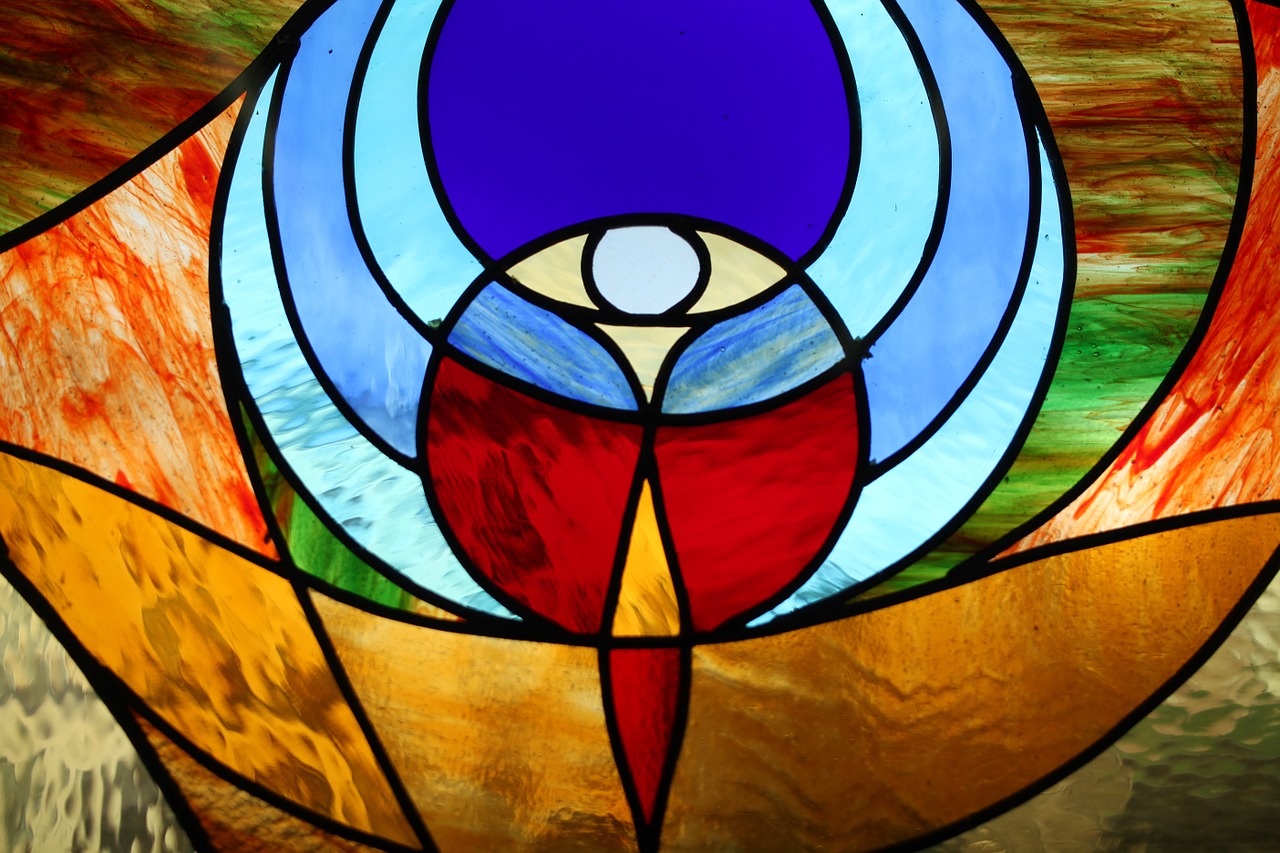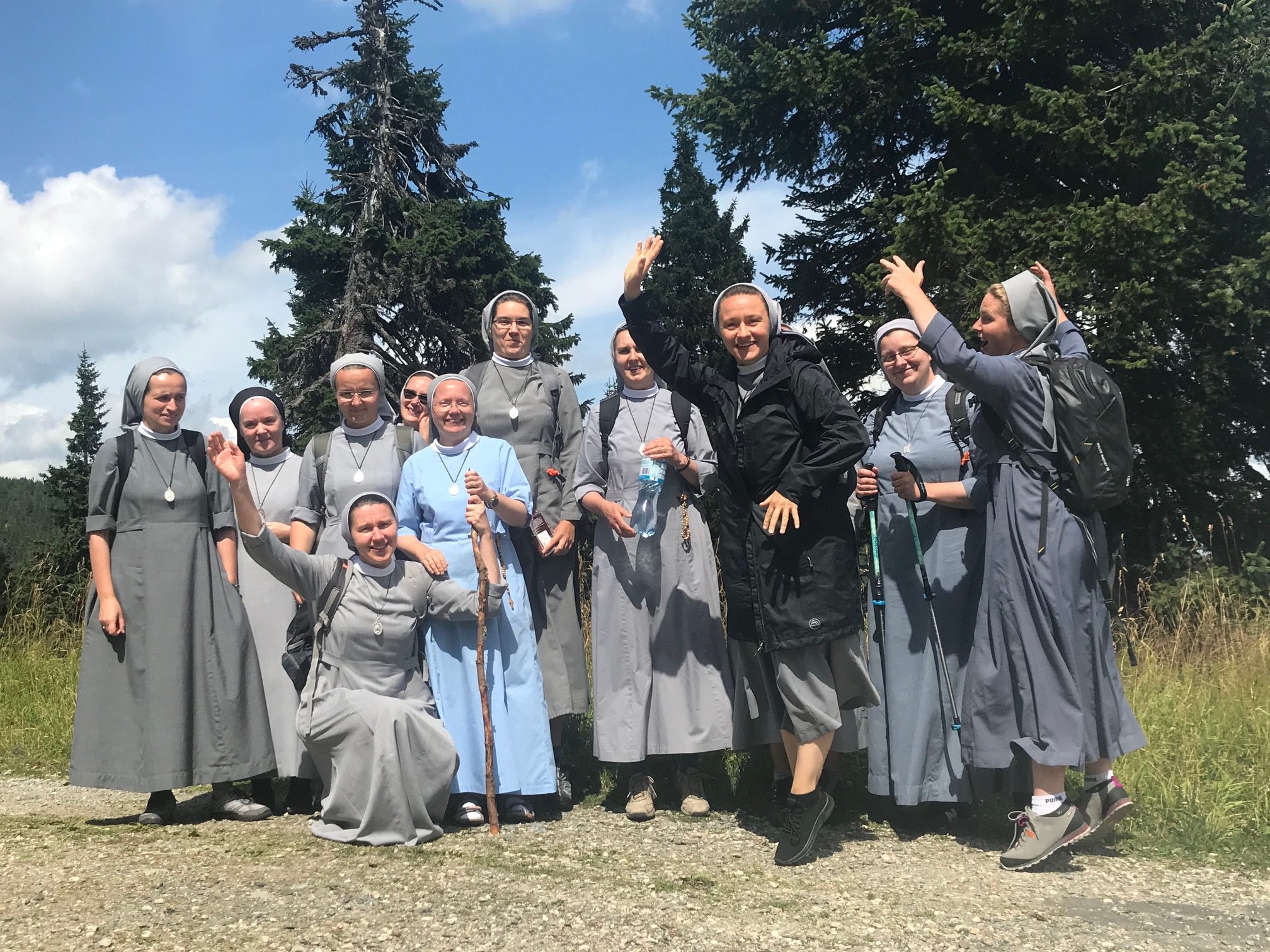
Jun 13, 2021 | SPIRITUALITY
The many gifts of grace and the one spirit
In his first letter to the Corinthians, the apostle Paul describes the life of the church there with the many different gifts of grace that can be found there and that are united in unity through the one spirit.
In a few days we have celebrate Pentecost. Can the Holy Spirit become our teacher to maintain and deepen our unity?
learn languages
Again and again I am enthusiastic about the story of Pentecost in Jerusalem. The apostles spoke bravely and enthusiastically about Jesus, the risen one. And the Acts of the Apostles reports that all could understand them in their own language. How could a Roman, an Arab, or an Egyptian understand a Jew? One can quickly dismiss this as a miracle of the Holy Spirit. A miracle – I would agree with that, but I wouldn’t dismiss it, on the contrary. I would want to learn from this miracle. Can I do that too: speak in a language that the other understands?
Babylon
The same language – and yet not understand (want to)
We’ve seen it in our own history: people use the same word (e.g. peace, freedom, human dignity) and mean something completely different. This gives rise to differences of opinion, conflicts, war.
Pentecost
A foreign language – and yet I can understand the other
But there is also the other. People want to approach one another, want to understand one another, because they are inspired by the same idea – perhaps also by the same spirit – and a community emerges. Pentecost is also possible today. Even today, God’s Spirit causes people to want and be able to understand one another, and thus leads them to unity.
You are my beloved son (beloved daughter)
The Holy Spirit is often referred to as the love that connects God the Father with the Son. This is shown very impressively at the baptism of Jesus. The baptism of Jesus in the Jordan is reported in all 4 gospels. And in all accounts the Spirit of God is mentioned, who came down from above in the form of a dove. And a voice said, This is my beloved son, in whom I am very pleased.
I have found my satisfaction in you. – This sentence expresses the deep, loving relationship between Jesus and his Father.
Take the story of Jesus’ baptism into your spiritual contemplation! Here are a few questions: Has God said this to you before? When? Directly or through someone else? In what words or in what way? – Did you speak this sentence to others? What is your experience with it?
All should be one
In addition to love, the topic of “unity” is an important topic in Jesus’ farewell speeches (Jn 15-17), from which we often hear in the Gospel in the weeks before Pentecost.
In his farewell speeches, in which Jesus also promised his disciples the Holy Spirit, Jesus prayed for the disciples: “All should be one, like you, Father, in me and I in you” (Jn 17:21). Jesus asks for the unity of his disciples, i.e. also for the unity of the church and of all her members. For him this is more than a pious wish. His request for unity has two goals:
so that the world may believe (Jn 17:21)
The Jesuit Alfred Delp once said it very clearly shortly before his execution: “If the Church once again expects the image of a quarreling Christianity, it is written off.” In other words: it is no longer credible. Conversely, Christians living in unity can make others thoughtful and believe in Jesus Christ.
So that they may see your glory (Jn 17:22, 24)
In the previous monthly lectures we saw how an effort and deepening of unity can change people’s lives for the better and thus make them happy. This can be seen most clearly in the area of reconciliation.
Nobody should be lost
There is another request for unity in Jesus’ farewell speeches. Jesus asks that all should be one (Jn 17:11). And he adds that no one has been lost (Jn 17:12). Jesus is referring to an earlier statement: “It is the will of him who sent me that I should not let any of those he gave me perish” (Jn 6:39).
This request of Jesus can basically be related to eternal life; in other words, Jesus wants all people to be saved and go to heaven.
But you can also relate this request to everyday experiences: I don’t want anyone to be dropped or written off. Jesus met people with this attitude. There were quite a few who were written off and avoided by the society of that time and also by the representatives of religion: tax collectors, the sick, strangers, lepers, adulterers. Nobody wanted to have fellowship with them, their unity was broken. Jesus turned to these people, often causing offense. But people felt that he did not write them off. In his eyes (i.e. in the eyes of God) these people were valuable. And this care has often changed her life.
Prelate Dr. Stefan Dybowski
May 10th, 2021 Monthly lecture St. Augustinus Monastery, Berlin-Lankwitz

Jun 8, 2021 | POSITIVE IMPULSES
Liberty is so beautiful. But the liberty is something you have to achieve within yourself first. It is achieved when you can detach yourself in each situation and see the situation realistically and reasonably. You liberate yourself above what is happening within you and around you. It is a result of a vision and discipline. Vision to find yourself and to realize yourself for the service of others. If it is not for others you can never liberate yourself. Then the discipline, to keep yourself in this track constantly and with perseverance. Sounds hard but a life without liberty is harder.
Don Giorgio

Jun 6, 2021 | FORUM, NEWS
My name is Magdalena and I am 35 years old.
The Sisters of Mary Immaculate have always accompanied me in my life.
Already in kindergarten, the sisters taught me catechesis. While in primary school, Sr. Małgorzata ran a small community called “Children of Mary” to which I belonged. I remember wearing such blue capes back then. There were about 25 children of us We actively participated in Holy Masses – during Lent we led the Way of the Cross for children during the Rosary period, in October we led the rosary, and during Advent we went to the rorat.
Those were beautiful times.
Later, as a teenager, for several years I went on a retreat for girls in Bard Śląski or Wrocław, which were organized by the Sisters (I have contact with some of them who participated or led them). I remember the time of the retreat very well. It was an amazing time, a time of meeting new people, a time of integration with the Sisters and other girls, a time of getting to know the life of the Sisters. Daily Holy Masses, adoration, were extraordinary for me, I could come closer and get to know the love of the Lord Jesus, adore the Blessed Sacrament, be filled with God’s presence.
As a teenager, I was also a volunteer in the Nursing and Treatment Institution for children with mental and physical disabilities run by the Sisters. During the children’s visits, I also had the opportunity to go to the chapel to pray, sometimes I prayed the rosary and the breviary with the Sisters.
I was very eager to come to spend time with these children, play, cuddle them, make their time more pleasant, give them some love that they lacked, because they often did not have parents who would visit them.
This period was beautiful and at the same time difficult, because many of these children were seriously ill, but each was beautiful, because she was a child of God.
It was from there, from this voluntary service with the Sisters, that my vocation to work with sick people came to me. Currently, I have been working as a medical tutor for 13 years. Although sometimes my work is difficult, it gives me a lot of satisfaction because I can help another person in need, take care of him, smile, talk, do all the caring activities that they themselves are often unable to do on their own.
We do not really appreciate what we have until we ourselves are in the shoes of sick people, after accidents or strokes….
My motto in life is: “Treat another person as yourself would like to be treated “, so I try to take care of the people entrusted to me in the way I would like to be treated myself if I felt ill and needed constant care.
I am very happy that in my life I had the opportunity to meet the Sisters of Mary Immaculate. In the past, I even thought of becoming a nun, but I found out that my calling is to live in marriage life.
In retrospect, I can see that everything that I “sat up with” as a girl, later as a teenager by participating in the retreat organized by the Sisters, participating in volunteering, emanated on my further life.
The sisters taught me a lot, especially patience and empathy towards others.
Many people ask me this question: “Magda, where do you get your optimism from, you are always so smiling”. In fact, I get a lot from my faith and the work I do. I am a believer and it will never change!! I am happy with each new day given to me.
THE LORD’S LOVE IS GREAT! and more than once have experienced His presence in my life. Sometimes we complain that something went wrong … that we don’t have something. And do we wonder, Is it that important? Do material good count so much? Do positions, education constitute my value?
When Jesus took the cross on his shoulders – no one asked if he wanted to take it. He took the cross and then died for our sins. He did not complain that it was hard for him.
LET’S REMEMBER that everything that seems impossible to man with God everything is possible.
MAGDA

Jun 1, 2021 | NEWS
When the Solemnity of the Most Holy Body and Blood of the Lord is approaching, many memories associated with the Blessed Sacrament come to my mind. There are so many documents, books, sermons and conferences on the Eucharist … I don’t remember where I came across this term: Sacrament of consecrated life. The author argued that since two states in the Church – priesthood and marriage – have their own sacrament, the Eucharist is the sacrament proper to consecrated persons, because in it they unite with their Bridegroom.
Most often, we have the opportunity to attend Holy Mass every day in our religious convents or parish churches. The time when, due to illness or other circumstances, I cannot participate in it is an unpleasant experience for me, a reminder of my own poverty and human limitations. Many believers have had similar experiences, especially today in an ongoing pandemic. Participation in the Holy Sacrifice is a daily source of grace and light coming through the Word of God or the texts of mass prayers, invitations or songs. Likewise, the bread and wine which Christ chose to become his body and blood,
in the simplicity of their matter, they remind us of God’s love for what is small, humble and fragile. The gesture of breaking the Bread before the rite of Communion reminds me of God’s humility and submission to man. And when the Lord Jesus comes in Holy Communion, He allows me to experience His transforming closeness and trust in me as a weak person. I am in communion with Him and with the Church, my community. Having contact with many people with different views, faith or lifestyle, when I come to church for the Eucharist, I feel more that I am at home. My Lord’s house is my home. Being at Holy Mass, I do not act individually, but in a community. The gestures, spoken words, and body postures lead to the transition from “I” to “we”. I discovered the unifying value of the Eucharist by spending many years in a small community when we could experience it together on Sundays, and as a community feast and distinction when the Holy Mass was celebrated in our community chapel.
Caring for a chapel with the Blessed Sacrament in each of our houses is an expression of the wisdom of the Church and Congregation. We really live under one roof with our Lord. His silent presence accompanies our daily affairs. When I remain in silent adoration in His presence, I am amazed by His love expressed in the sign of the Eucharistic Bread. I am to be His monstrance when I go to the sisters, to the apostolate in catechesis, always … and although I do not experience spiritual raptures, being in His presence is my peace, my strength. Daily communal adoration, which is on the agenda and faithfully practiced both in my old small community and nowadays, is of great value to me. By remaining with my sisters communally before the Lord, we strengthen each other with the testimony of faith and love.
Another form of Eucharistic worship is characteristic for the Solemnity of Corpus Christi – processions with the Blessed Sacrament. Since I was a child, I was aware that I was participating in the Eucharistic processions along the streets of my city in a particular form of manifestation of faith. I had a sense of distinction walking as if in the retinue of the Lamb, as St. John the Apostle: “They are those who accompany the Lamb wherever he goes; these men were redeemed as first fruits to God and the Lamb, and no lie was found in their mouth: they are blameless” (Rev 14: 4-5). And in another place: “And I did not see a temple in it: for its temple is the Lord God almighty and the Lamb. And the city does not need sun or moon to illuminate it, for the glory of God has illuminated them, and the Lamb with his lamp. And the nations will walk in his light, and the kings of the earth will bring their splendour to him ” (Rev21: 22-24). The image of Christ the Lamb illuminating the city and the nations suited the crowds of processions stopping at the four altars and Jesus blessing us in the Blessed Sacrament.
The First Holy Communion celebrations usually fall on the time around Corpus Christi, and later their subsequent anniversaries. Finishing my reflections on such a day I will share one more memory. On the day of my First Communion after the celebration in the church in the family circle I was asked by someone from the guests who I would like to become when I grow up. Without thinking, I replied that I was to become a nun. There was consternation among those present because nothing foreshadowed it, nor did anyone expect such an answer. Time passed, and to this day I do not know where this answer came from, although … today I can repeat from St. Paul: “by the grace of God I am what I am, and His grace was not in vain; on the contrary, I worked (…), not I, admittedly, but God’s grace with me” (1 Cor 15:10).
Sr. Michaela Musiał




